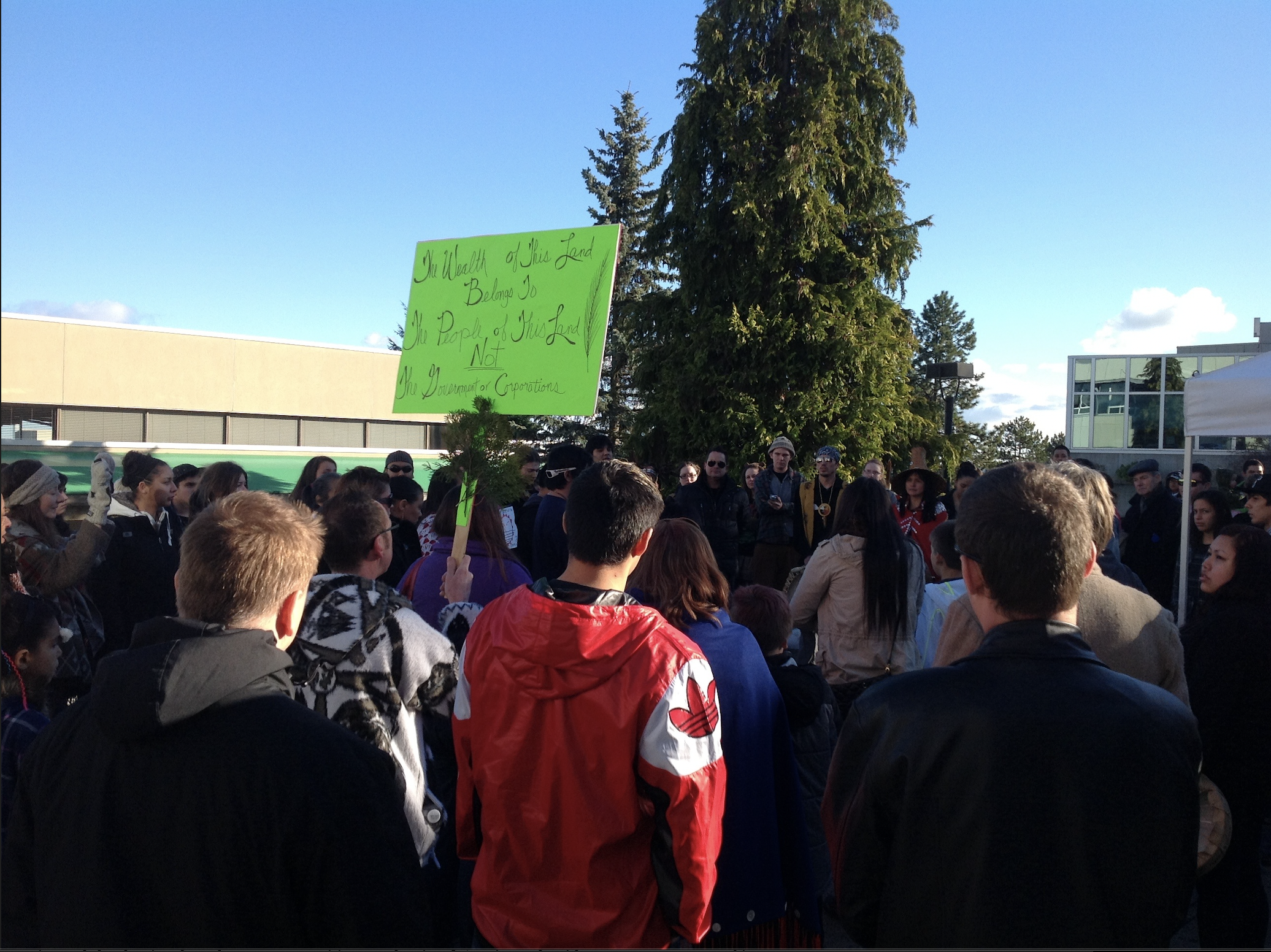There has to be a ‘Get to No’.
Addendum: A day later I read this piece in Maclean’s. I highly recommended reading it…. before or after you read my opinion, of course. 🙂
As the protests and blockades in support of the Wet’suwet’en Hereditary Chiefs opposed to the TC Energy Coastal Gas Link pipeline have escalated across the country I’ve watched as people become more entrenched in their positions, myself included.
That’s normal. Every controversial subject will have people for and against, unlikely to budge no matter what. Certainly this was very often the case while I was on Council. Members of the public would come to a council meeting or public hearing and state their opinion. The more controversial the topic, the less likely that opinion was going to be nuanced or open to change. The same was true of councillors around the table trying to remain impartial before a decision was made. I did my best to always be open to every possibility, but at some point human nature and principle take over.
What enabled that debate to happen in a consistent and predictable way was the fact there was always an option to proceed or not proceed. Most importantly, there was plenty of precedent where Council had opted for any outcome or even reversed a decision. This implicit knowledge by both the public and decision makers enables them to be open to all possibilities.
Whether it was the smallest decision about removing or adding parking, or something much bigger like the location of a school or natural gas plant, people knew there was a pathway to no. Council could be swayed to approve or deny a rezoning, or even reverse its plans.
No one had a veto, but it was a clear pathway to no. That reasonable expectation for openness is lacking in the Coastal Gas Link project and many other natural resource projects, especially those that go through un-ceded First Nation territories.
If it is their land, why can’t they say no?
I am not a legal scholar and I am not going to attempt to make a legal argument except to say that I do have an understanding of the Delgamuukw decision that recognized the oral traditions of the Wet’suwet’en and other Indigenous nations in that region as proof of their right and title to the thousands of square kilometres that makes up their entire territory. This is very different from the Indian Act-based elected councils whose powers, to paraphrase Grand Chief Stewart Phillip “end at the edge of the reserve”.
The Hereditary Chiefs and other ordinary people who call that territory home can legitimately say they live there, it is their territory, their home.
The common sense question that comes to my mind is this: If I and my neighbours can show up at a Council meeting and demand a park not be bulldozed, or a parking spot not be removed, and it’s not even on my own property, why can’t a First Nations title holder stand up and say no to a pipeline across their own territory. Why, in fact should they even have to justify it?
Yes, some of my other neighbours might be OK with the change, or maybe a big corporation might have some big money on the line. Maybe even a majority of people, might be OK with that thing I don’t like, but if there is a large, loud and convincing enough opposition, then I can have a pretty reasonable expectation that a decision will go my way.
This kind of thing happens all the time, heck, it’s what makes City Councils the most interesting level of government!
But it’s not the norm on First Nations issues, especially when natural resources are involved.
Trust is Balance – So is Reconciliation
The most disturbing hashtag on Twitter to come out of all this is #ReconciliationIsDead
Is it? Did it even start?
Trust can’t be established if the answer always has to be yes. What kind of relationship is it between a husband and wife if one side always demands the answer to be yes? That is essentially the definition of abuse. Are we even building a relationship if one side has to burn the house down in order to make it clear the answer is no?
Call it a veto or just a process to “no”, but if we are to come up with lasting solutions and lasting relationships, we have to all be secure in knowing that all options are open, including the option not to proceed.
There won’t be real progress until ‘No’ is accepted a lot more easily than after burning down the house, but giving in to No after the house burns down is step one.

